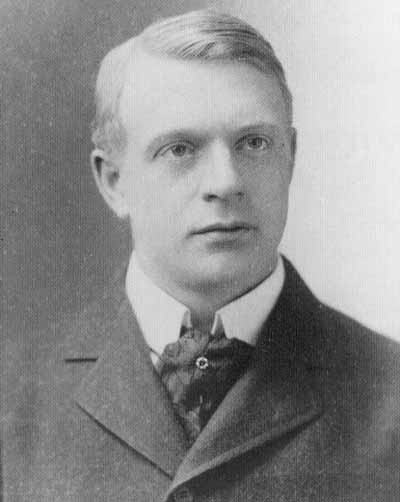- Frederick F. Russell
Infobox Scientist
name = PAGENAME
box_width =
image_width =150px
caption = PAGENAME
birth_date =17 August ,1870
birth_place =Auburn, New York
death_date =December 29 1960
death_place =
residence =
citizenship =
nationality =United States
ethnicity =
field =medicine
work_institutions =
alma_mater =Columbia University
doctoral_advisor =
doctoral_students =
known_for =typhoid vaccine in 1909
author_abbrev_bot =
author_abbrev_zoo =
influences =
influenced =
prizes =
religion =
footnotes =Brigadier General Frederick Fuller Russell (1870,Auburn, New York , USA-December 29 1960 ) was aU.S. Army physician who developed an Americantyphoid vaccine in 1909. In 1911, the typhoid vaccination program was the first in which an entire army was immunized. It eliminated typhoid as a significant cause of morbidity and mortality among U.S. military personnel.Biography
After graduating from
Cornell University in 1891, Russell received his Doctor of Medicine fromColumbia University in 1893 and hisDoctor of Science fromGeorge Washington University in 1917. In 1898 he was commissioned asfirst lieutenant in the Medical Corps of the U.S. Army.It was during his time as a Medical Corps officer that he began his research into the inoculation of soldiers against typhoid. In 1908 Surgeon General O'Reilly sent Russell to England to observe the work of Sir
Almorth Wright , Professor at theRoyal Army Medical College , who had been experimenting with a method of prophylaxis with killed culture of typhoid organisms to immunize against the disease. Upon Russell's return he submitted a report on Wright's research, which O'Reilly considered as "a very valuable treatise on the epidemiology of this disease."As a result of the report Russell was assigned the duty of implementing an immunization program within the U.S. Army. In 1910 he inoculated his first group of volunteers and by 1911 vaccination became compulsory. From a morbidity of 173 cases in 1910, Russell was able to reduce the total to nine cases in 1912 with only one death.
During his career he served as curator of the
Army Medical Museum , instructor in theArmy Medical School , and professor ofpathology andbacteriology atGeorge Washington University . In addition, he served on various investigating boards, one of which he was able to advise and offer technical counsel toMajor Carl Darnall in the development of a water filter for field use and the first water chlorinator using gaseous chlorine.After his resignation from the Army in 1921, Russell returned to the rolls as a reserve officer and in November of 1920 was appointed Brigadier General of the
Medical Officers Reserve Corps . Following his military career he served as the director of theInternational Health Board of theRockefeller Foundation . As director, Russell continued his research into public health focusing on diseases such asyellow fever . He spent the final years (1936-39) of his career in medical science and administration as professor ofepidemiology andpreventive medicine atHarvard Medical School andHarvard School of Public Health .References
*cite journal
quotes = no
last=WHAYNE
first=T F
authorlink=
year=1962
month=Jul
title=Memoir of Frederick Fuller RUSSELL (1870-1960)
journal=Transactions & studies of the College of Physicians of Philadelphia
volume=30
issue=
pages=43-4
publisher =
location =
issn =
pmid = 14038046
bibcode =
oclc =
id =
url =
language =
format =
accessdate =
laysummary =
laysource =
laydate =
quote =
*cite journal
quotes = no
last=KINSMAN
first=J M
authorlink=
year=1961
month=
title=Frederick Fuller RUSSELL, 1870-1960
journal=Trans. Assoc. Am. Physicians
volume=74
issue=
pages=44-6
publisher =
location =
issn =
pmid = 14037085
bibcode =
oclc =
id =
url =
language =
format =
accessdate =
laysummary =
laysource =
laydate =
quote =External links
* [http://www.nlm.nih.gov/hmd/manuscripts/ead/russell546.html Finding Aid to the Frederick F. Russell Papers]
Wikimedia Foundation. 2010.
